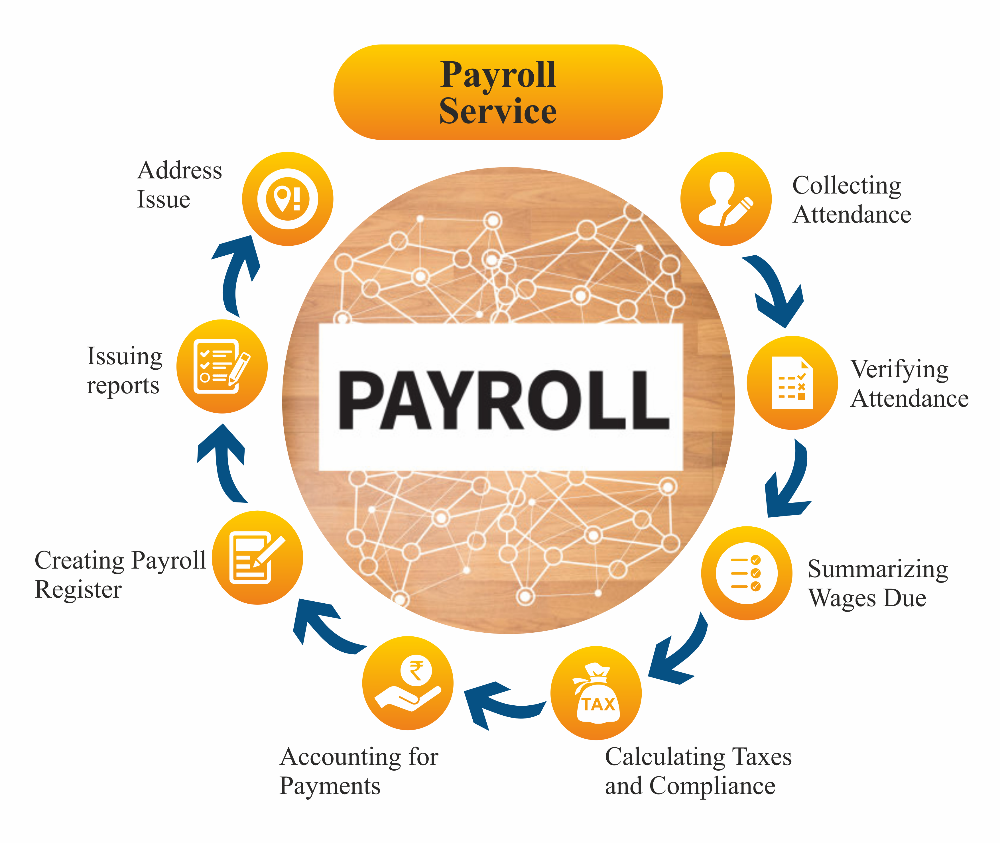Payroll Service: Streamlining Employee Compensation
Payroll services are an essential aspect of business operations, responsible for managing the process of paying employees for their work. These services ensure that employees are paid accurately and on time, encompassing a wide range of tasks including salary disbursement, tax calculations, benefits management, and compliance with legal and regulatory requirements.
Key Components of Payroll Services
- Salary and Wage Calculation: Payroll services calculate employees' gross wages based on their work hours, salary rate, and any overtime or bonuses. This involves tracking employee attendance, leaves, and other factors that affect their pay.
- Tax Withholding and Filing: Payroll services handle the complex task of calculating and withholding the appropriate amount of federal, state, and local taxes from employees' paychecks. They also manage the filing of payroll taxes to the relevant authorities, ensuring compliance with tax laws.
- Deductions Management: This includes managing various deductions such as social security, Medicare, health insurance premiums, retirement contributions, and other voluntary deductions chosen by the employees.
- Direct Deposit and Check Distribution: Payroll services facilitate the direct deposit of employees’ net pay into their bank accounts, reducing the need for physical checks. For those who prefer, they also handle the distribution of paper checks.
- Record Keeping: Accurate and comprehensive records of all payroll transactions are maintained. This includes pay stubs, tax filings, and reports on deductions and benefits, which are essential for audits and financial planning.
- Compliance and Reporting: Payroll services ensure compliance with labor laws and tax regulations. They generate and file mandatory reports such as W-2s, 1099s, and other tax documents. Staying updated with changing laws and regulations is crucial to avoid penalties.
- Employee Self-Service: Many payroll services offer employee portals where workers can access their pay stubs, tax documents, and manage their personal information. This feature enhances transparency and reduces administrative workload.
- Integration with HR and Accounting Systems: Modern payroll services often integrate seamlessly with Human Resources (HR) and accounting software, ensuring consistency and accuracy across the organization’s financial and employee data.

Benefits of Using Payroll Services
- Time Savings: Automating payroll processes saves significant time for businesses, allowing them to focus on core activities rather than administrative tasks.
- Accuracy: Payroll services reduce the risk of errors in salary calculations, tax withholdings, and other deductions, ensuring employees are paid correctly and on time.
- Compliance: Staying compliant with ever-changing tax laws and labor regulations can be challenging. Payroll services keep businesses updated and ensure adherence to legal requirements, minimizing the risk of penalties.
- Security: Payroll services utilize advanced security measures to protect sensitive employee information and financial data, reducing the risk of data breaches and fraud.
- Cost-Effective: Outsourcing payroll can be more cost-effective than managing it in-house, especially for small and medium-sized businesses. It eliminates the need for a dedicated payroll department and reduces the costs associated with payroll errors and penalties.
- Enhanced Reporting: Payroll services provide detailed reports on payroll expenses, tax liabilities, and other financial metrics, aiding in strategic decision-making and financial planning.
Choosing the Right Payroll Service
When selecting a payroll service, businesses should consider several factors:
- Scalability: The service should be able to scale with the business as it grows, accommodating an increasing number of employees and more complex payroll needs.
- Customer Support: Reliable customer support is crucial for resolving any issues that may arise during the payroll process. Look for services that offer robust support options, including live chat, phone, and email support.
- Ease of Use: The payroll system should be user-friendly and easy to navigate, even for those without extensive technical knowledge.
- Cost: Evaluate the pricing structure of the payroll service to ensure it fits within the business’s budget. Consider both the base fees and any additional charges for extra features or services.
- Reputation and Reviews: Research the service provider’s reputation and read customer reviews to gauge the quality of their service and customer satisfaction.

Conclusion
Payroll services play a critical role in ensuring that employees are compensated accurately and timely, while also helping businesses stay compliant with tax laws and labor regulations. By automating payroll processes and providing comprehensive support, these services enable businesses to operate more efficiently and focus on their core activities. Choosing the right payroll service can significantly enhance a company’s operational effectiveness, financial accuracy, and overall employee satisfaction.